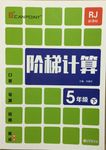
·ÖÎö ±¾ÎÄÖ÷Òª½éÉÜÁËмÓƵÄѧУÉú»îÊÇÔõÑùµÄ£¬Óë¹úÄÚÎÒÃǵÄУ԰Éú»îÏà±ÈÓкܶ಻֮ͬ´¦£®
½â´ð 65£®A class lasts half an hour in Singapore£®ÌØÊâÒÉÎʾ䣬ÎʵÄʱ¼äµÄ³¤¶È£¬¸ù¾ÝÎÄÖеÚÒ»¶ÎÖÐÔ¾äa class only lasts half an hour¿ÉÖªÊdzÖÐø°ë¸öСʱ£¬¹ÊΪ£ºA class lasts half an hour in Singapore£®
66£®No£¬they don't£®Ò»°ãÒÉÎʾ䣬ÓÃÖú¶¯´ÊÌáÎÊÓÃÖú¶¯´Ê×÷´ð£®¸ù¾ÝÎÄÖеڶþ¶ÎÔ¾äThey do not do eye exercises¿É֪ûÓÐ×ö£¬¹ÊΪ£ºNo£¬they don't£®
67£®School ends at 1£º50 p£®m£®in Singapore£®ÌØÊâÒÉÎʾ䣬ÎʵÄÊÇʱ¼ä£®¸ù¾ÝÎÄÖеÚÈý¶ÎÔ¾äIn Singapore school ends at 1£º50 p£®m¿ÉÖª½áÊøÓÚÏÂÎç1µã50£¬¹Ê´ð°¸Îª£ºSchool ends at 1£º50 p£®m£®in Singapore£®
68£®Singapore's population includes Chinese£¬Indians£¬Malays and Westerners£®ÌØÊâÒÉÎʾ䣬ÎʵÄÈË¿ÚµÄ×é³É£®¸ù¾ÝÎÄÖеÚËĶÎSingapore's population£¨ÈË¿Ú£©includes Chinese£¬Indians£¨Ó¡¶ÈÈË£©£¬Malays£¨ÂíÀ´ÈË £©and Westerners¿ÉµÃ³ö´ð°¸£®
69£®Teachers teach in English in Singaporean schools£®ÌØÊâÒÉÎʾ䣮¸ù¾ÝÎÄÕÂ×îºóÒ»¶ÎÔ¾äIn Singaporean schools£¬teachers teach in English¿ÉÖªÓõÄÓ¢Ó
µãÆÀ ÔĶÁÀí½âÌ⣬ÐèÒªÏȶÁÌ⣬Àí½âÇå³þÌâÄ¿Òâ˼£¬½Ó×Å´ø×ÅÎÊÌâÈ¥ÎÄÕÂÖÐÑ°ÕÒ¡¢Íƶϴ𰸣®°ÑÎÕºÃϸ½Ú£¬×¢ÒâÍÆÇã¬ÕûÀí³öÕýÈ·µÄ¾ä×Ó£¬²ÅÄܱ£Ö¤ÕýÈ·ÂÊ£®


 ½×ÌݼÆËãϵÁдð°¸
½×ÌݼÆËãϵÁдð°¸
| Ä꼶 | ¸ßÖÐ¿Î³Ì | Ä꼶 | ³õÖÐ¿Î³Ì |
| ¸ßÒ» | ¸ßÒ»Ãâ·Ñ¿Î³ÌÍƼö£¡ | ³õÒ» | ³õÒ»Ãâ·Ñ¿Î³ÌÍƼö£¡ |
| ¸ß¶þ | ¸ß¶þÃâ·Ñ¿Î³ÌÍƼö£¡ | ³õ¶þ | ³õ¶þÃâ·Ñ¿Î³ÌÍƼö£¡ |
| ¸ßÈý | ¸ßÈýÃâ·Ñ¿Î³ÌÍƼö£¡ | ³õÈý | ³õÈýÃâ·Ñ¿Î³ÌÍƼö£¡ |
¿ÆÄ¿£º³õÖÐÓ¢Óï À´Ô´£º ÌâÐÍ£ºÔĶÁÀí½â
²é¿´´ð°¸ºÍ½âÎö>>
¿ÆÄ¿£º³õÖÐÓ¢Óï À´Ô´£º ÌâÐÍ£ºÌî¿ÕÌâ
²é¿´´ð°¸ºÍ½âÎö>>
¿ÆÄ¿£º³õÖÐÓ¢Óï À´Ô´£º ÌâÐÍ£ºÔĶÁÀí½â
²é¿´´ð°¸ºÍ½âÎö>>
¿ÆÄ¿£º³õÖÐÓ¢Óï À´Ô´£º ÌâÐÍ£ºÔĶÁÀí½â
²é¿´´ð°¸ºÍ½âÎö>>
¿ÆÄ¿£º³õÖÐÓ¢Óï À´Ô´£º ÌâÐÍ£ºÌî¿ÕÌâ
| have | lie | call | ride | like |
²é¿´´ð°¸ºÍ½âÎö>>
¿ÆÄ¿£º³õÖÐÓ¢Óï À´Ô´£º ÌâÐÍ£ºÔĶÁÀí½â
²é¿´´ð°¸ºÍ½âÎö>>
¿ÆÄ¿£º³õÖÐÓ¢Óï À´Ô´£º ÌâÐÍ£ºÔĶÁÀí½â
²é¿´´ð°¸ºÍ½âÎö>>
¿ÆÄ¿£º³õÖÐÓ¢Óï À´Ô´£º ÌâÐÍ£ºÌî¿ÕÌâ
²é¿´´ð°¸ºÍ½âÎö>>
°Ù¶ÈÖÂÐÅ - Á·Ï°²áÁбí - ÊÔÌâÁбí
ºþ±±Ê¡»¥ÁªÍøÎ¥·¨ºÍ²»Á¼ÐÅÏ¢¾Ù±¨Æ½Ì¨ | ÍøÉÏÓк¦ÐÅÏ¢¾Ù±¨×¨Çø | µçÐÅթƾٱ¨×¨Çø | ÉæÀúÊ·ÐéÎÞÖ÷ÒåÓк¦ÐÅÏ¢¾Ù±¨×¨Çø | ÉæÆóÇÖȨ¾Ù±¨×¨Çø
Î¥·¨ºÍ²»Á¼ÐÅÏ¢¾Ù±¨µç»°£º027-86699610 ¾Ù±¨ÓÊÏ䣺58377363@163.com